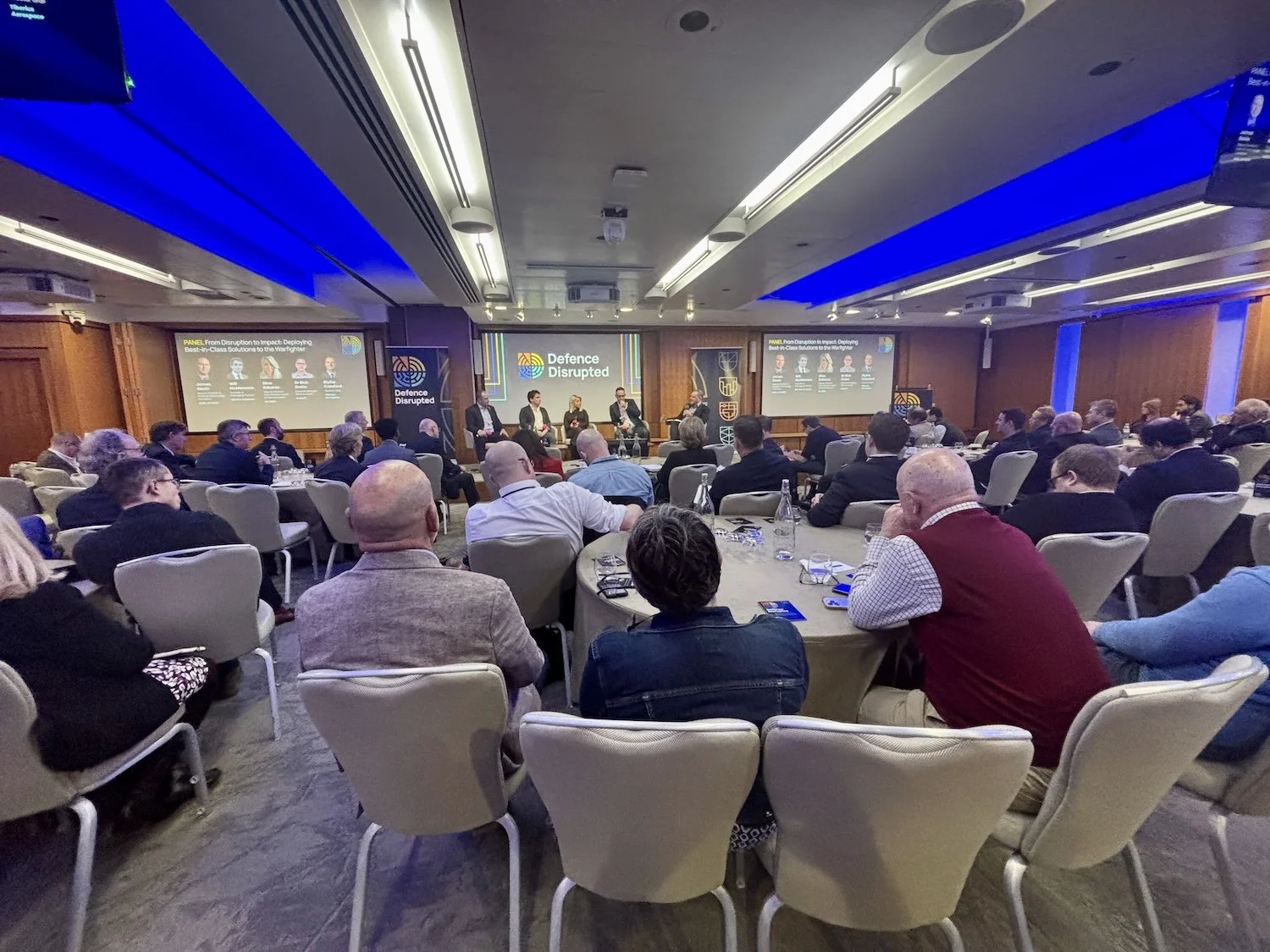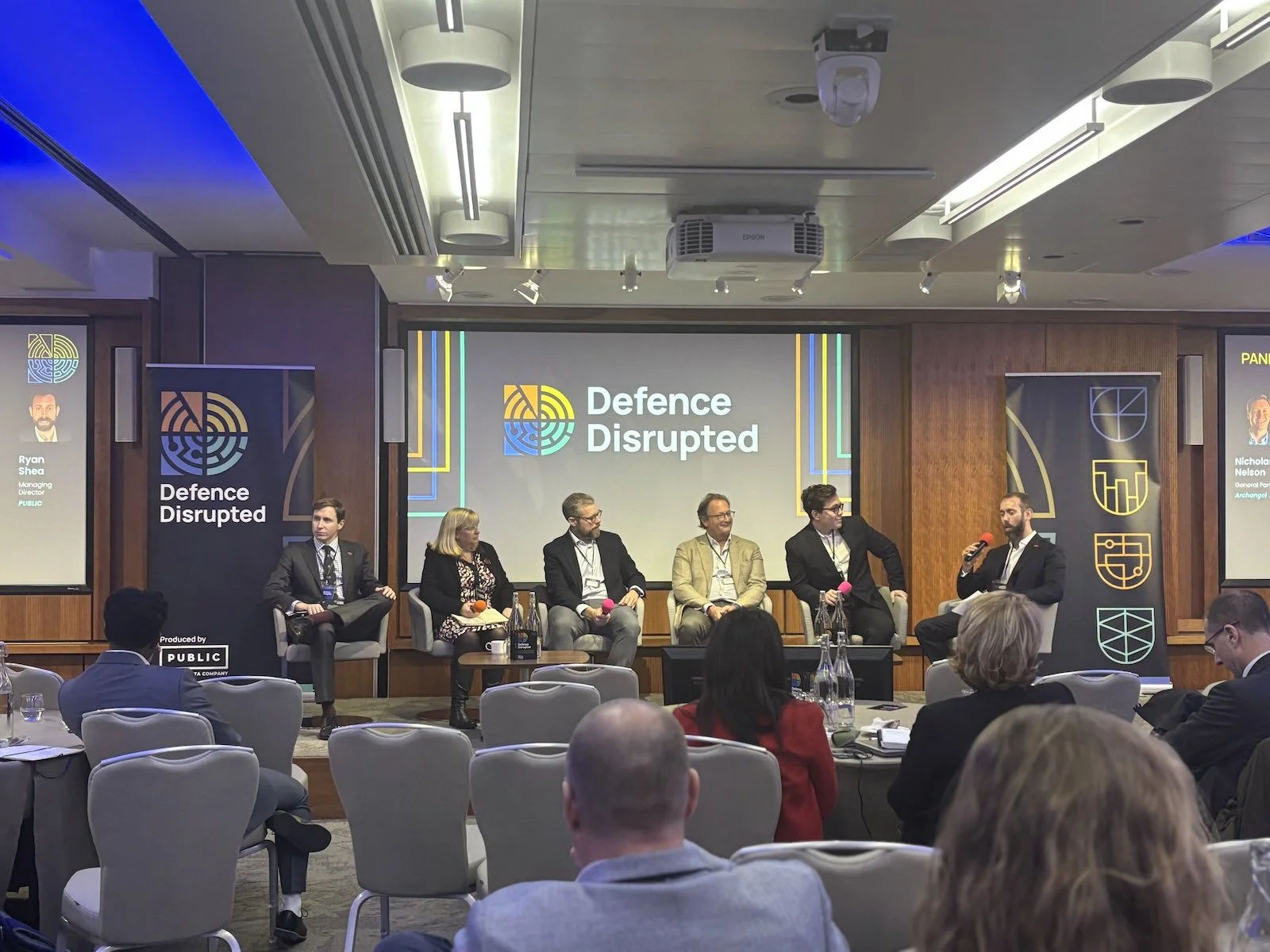Defence Disrupted, London, Nov 2025
On 4th November 2025, London played host to Defence Disrupted 2025 , a one-day conference uniting military leaders, technologists, investors, and defence innovators. The event focused on one core mission, accelerating capability and rethinking how innovation moves from concept to deployment in modern defence.
© Images by Hiatus.Digital
Leadership and Insight
The line-up featured some of the most influential figures in global defence and technology.
Among them were Admiral Sir Tony Radakin KCB, former Chief of Defence Staff, Vice Admiral Andy Kyte, Chief of Defence Logistics and Support, and James Gavin, Deputy Director and Head of Technology Transition at UK Defence Innovation.
Other notable voices included Dr Rich Drake of Anduril Industries, Dina Kakaras from the MOD’s Commercial X team, Nicholas Nelson of Archangel, Caroline Cooper from UK Space Command, Will McManners of MD One Ventures, and General Jarmo Lindberg, former Chief of Defence for the Finnish Defence Forces.
The event also welcomed a diverse mix of founders, investors, and strategists such as Borys Nadykto (OffSet Labs), Sebastian von Ribbentrop (JOIN Capital), Ryan Shea (PUBLIC), Tracey North (DASA), Ben Fawcett (Advai), and Blythe Crawford (Tiberius Aerospace). This combination of military decision-makers and agile innovators made the dialogue uniquely dynamic.
Themes That Defined the Day
Three themes underpinned the sessions throughout the day: Future Capability, Procurement for Impact, and People and Partnerships.
Future Capability explored how emerging technologies, from AI and autonomy to data fusion and robotics, are reshaping operational advantage. Panellists urged defence organisations to move faster and embrace experimentation, while maintaining ethical integrity and trust.
Procurement for Impact focused on redesigning acquisition systems to better support innovation. Speakers highlighted how traditional procurement timelines are incompatible with the pace of modern technology development, calling for more agile and adaptive frameworks.
People as a Force Multiplier underscored the human dimension of transformation. Discussions revolved around training, wellbeing, and the importance of cross-sector collaboration, from startups and SMEs to large defence primes and government agencies.
A Catalyst for Collaboration
Defence Disrupted 2025 stood out as more than a conference, it was a call to action. The event made clear that defence innovation depends on ecosystem collaboration, where public and private sectors share responsibility for agility, resilience, and capability growth.
Startups and scaleups were encouraged to partner with defence users early, while established industry players were urged to open their architectures to faster integration and experimentation.
Looking Ahead
In an era when adversaries adapt at tech speed, the message from Defence Disrupted was unambiguous: innovation is no longer optional. Future advantage will belong to those who can move first, move fast, and move together.
The London forum captured a clear truth, defence innovation now sits at the intersection of technology, trust, and tempo. Those who understand that intersection will shape the next generation of security, resilience, and human-machine collaboration.
You Might Also Like Our ‘Future Frontiers’ podcast:







